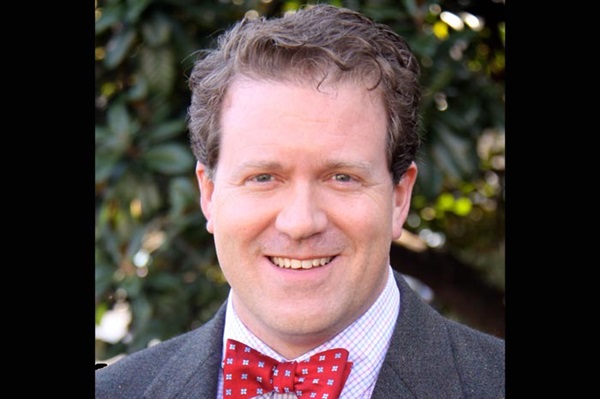God does speak to us, primarily through Scripture that reveals God has will and gives instructions for living. But, some people receive an additional, more specific, calling from God.
"In The United Methodist Church, we think of 'calling' in the context of hearing what God has said and trying to figure out how best to respond," said the Rev. Trip Lowery, director of young adult ministry discernment and enlistment for the General Board of Higher Education and Ministry.
"We use the terms listen, discern and respond," he said. "Be intentional to listening to what God is saying, as well as what you hear through other people. Be intentional about having your eyes and ears open."
Affirmation is a big part of stories of call. Those who experience a call to service will almost never experience that call apart from other believers. Those called will hear others affirm their gifts and talents.
The Rev. Matthew Charlton is Higher Education and Ministry's assistant general secretary for collegiate ministries. He said the agency is making efforts to help people explore God's call from the beginning into various forms of lay and ordained ministry.
The agency's "focus is on developing leaders for service in the church," he said. "We also recognize that ministry is as broad as the imagination of the Holy Spirit." Collegiate ministry, he explained, creates "space for young people to experience God in their context and then respond in service to the world, a response that can take many forms."
If you sense God is calling you to ministry of some sort, the first step is to talk to your pastor, Lowery said. "This is the person who should know you best in your spiritual quest,"
"Another great reason to solidify the direction of the call is to be able to choose the best education path," Lowery said. "Seminary is a very expensive place to try to determine the call. You want someone seminary trained to lead a local congregation, of course, but if their calling is in another area, a degree in business or economics might be better."
Charlton added, "For ordained ministry in the church, there is a full process that engages the person in prayer, Bible study and conversation leading to candidacy and ordination. This process typically takes several years and is deeply formative." For ministry in the church not requiring ordination, there are a number of possibilities, he said.
Higher Education and Ministry also aids discernment and preparation, Charlton says, by pointing to paths of service in the church, deploying resources and training people in annual conferences as mentors to guide and walk with candidates through academic preparation into the practice of ministry.
Polly House, freelance writer and editor based in Nashville, Tennessee.
The World Service Fund provides basic financial support to program-related general agencies, which are especially important to the common vision, mission, and ministry of The United Methodist Church. Through World Service funding, agencies support annual conferences and local congregations in living out God’s mission for the worldwide Church. General agencies also provide essential services and ministries beyond the scope of individual local congregations and annual conferences through services and ministries that are highly focused, flexible, and capable of rapid response.





